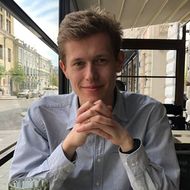‘Interest in the Application of Machine Learning in Bioinformatics Is Growing by the Year’
On August 28–30, HSE University’s Faculty of Computer Science held the 4th Summer School on Machine Learning in Bioinformatics. This year, 670 people registered for the event, and over 300 visited in person. The programme included lectures and seminars on various spheres of bioinformatics: applied bioinformatics and the bioinformatics of DNA, RNA, and proteins; elementary genomics; modern methods of data analysis and molecular biology. The lectures were complemented by practical tasks aimed at different levels of knowledge.
This year, lectures and seminars were delivered by teachers and researchers from different departments of HSE University (the Faculty of Computer Science, the Faculty of Biology and Biotechnology, the International Laboratory of Statistical and Computational Genomics, MIEM), as well as from Moscow State University’s Faculty of Bioengineering and Bioinformatics, the Moscow Institute of Physics and Technology, Skoltech, AIRI, Genotek, and the Sber AI Laboratory.
The school’s participants and organisers shared their impressions.

Maria Poptsova, Chief School Organiser, Head of the International Laboratory of Bioinformatics, Faculty of Computer Science
Everything went very well. I am pleased to say that interest in the application of machine learning in bioinformatics is growing by the year. This is evidenced by the large number of participants who attended all the lectures. We were able to attract excellent specialists from FCS partner companies and leading universities, and this, of course, significantly enriched the programme.
The school also gave people from different fields and even different cities the opportunity to meet, get acquainted, and exchange contacts in order to solve problems together and create new projects. Isn’t that the main thing about our summer school—intensive exchange of knowledge, experience and networking?

Alisa Kabalina, St Petersburg State University, Faculty of Biology
Since grade 11, I have been interested in bioinformatics. This field combines everything I love: mathematics, biology, and programming. I also really like machine learning and artificial intelligence. I liked the school; I learned a lot of new things.
I learned new tools and approaches to solving bioinformatics problems. I’m doing a project on applying language models to protein sequences, so I now have the opportunity to compare different models and their effectiveness at solving this problem. This is the first thing I will do after the Summer School. And in the future, I would like to take part in the development of various models and tools for analysing biological data.

Darya Varvina, Sechenov First Moscow State Medical University, Skoltech
I am interested in bioinformatics as a research tool in neuroscience, in particular, in molecular biology and biochemistry. I did not choose the school by chance; since bioinformatics covers many areas, there are always prospects for gaining new knowledge and skills. The school itself was great—it had cool specialists with working tools, the opportunity to practice theoretical material, excellent session organisation, new acquaintances, and communication.
Lecturer Veniamin Fishman stood out the most. Natural-language processing techniques as tools for working with bioinformatics data is a difficult topic to understand, especially for biologists. However, Veniamin presented the information in accessible language, and the information was easily built into a coherent chain.
The practical activities were suitable for different levels. Almost all the speakers divided the tasks into difficulty levels, which was a big advantage for the audience: no one found it too difficult or too boring. I have a few unsolved problems left, but this is a great excuse to go over the material again at home.

Sabina Mirzaeva, Lomonosov Moscow State University, Faculty of Chemistry, Laboratory of Ribonucleoproteins at Belozersky Institute of Physico-Chemical Biology
I am interested in genetics and molecular biology. The knowledge gained at the Summer School will help me in data processing and planning experiments, in olympiads, and in creating a startup, and it will also allow me to speak a common language with bioinformaticians. I learned about the latest developments in bioinformatics and met some leading experts.
I can highlight Alexander Rakitko’s lecture on the genetic passport and the workshop on the genotypes of Russia’s peoples; I also liked the opportunity to save the script from a practical task and see how real pipelines work.

Dmitry Solovey, Lomonosov Moscow State University, Biotech Campus, Master’s programme in Genomics and Human Health
I work in human genomics and have an interest in machine learning and deep learning, so the conference’s topic fits my interests perfectly. The school turned out to be wonderfully organised. I listened to each lecturer with interest.
What I liked and memorised most were the presentations by Veniamin Fishman and Dmitry Penzar on the application of language models and machine learning methods to genomic data.
In general, applying linguistic methods to genomes is not a new idea. A hot topic now is natural-language processing methods using deep learning; ChatGPT is on everyone’s lips. This is why I was really looking forward to the report by Veniamin Fishman and his colleagues from AIRI about their GENA transformer for solving genomics problems.
I would like to thank the organisers for the networking at this event—I gained many new ideas and useful contacts!

Nikolai Popov, Pirogov Russian National Research Medical University, Laboratory of Bioinformatics at Research Institute for Systems Biology and Medicine
I am interested in biology, bioinformatics, and metagenomics. The knowledge gained at the Summer School will help me begin to apply DL in my practice. Most of all I liked Vladimir Shchur’s lecture ‘Genetics and the History of Populations.’ I would like to see more overview lectures highlighting the benefits and drawbacks of popular and promising methods. It is great that there are creative practical tasks; I liked the possibility of saving the code from the tasks in order to look at it in detail in the future.
See also:
‘The Goal of the Spring into ML School Is to Unite Young Scientists Engaged in Mathematics of AI’
The AI and Digital Science Institute at the HSE Faculty of Computer Science and Innopolis University organised a week-long programme for students, doctoral students, and young scientists on the application of mathematics in machine learning and artificial intelligence. Fifty participants of Spring into ML attended 24 lectures on machine learning, took part in specific pitch sessions, and completed two mini-courses on diffusion models—a developing area of AI for data generation.
Software for Rapid Detection of Dyslexia Developed in Russia
HSE scientists have developed a software tool for assessing the presence and degree of dyslexia in school students based on their gender, age, school grade, and eye-tracking data. The application is expected to be introduced into clinical practice in 2024. The underlying studies were conducted by specialists in machine learning and neurolinguistics at the HSE AI Research Centre.
'We Are on Track towards Personalised Medicine'
The International Laboratory of Bioinformatics of the HSE Faculty of Computer Science and its partners in the Genetics of Cardiovascular Diseases Consortium are working on a new project titled ‘From Sequencing to the Development of a Cardiogenetic Test’ (in Russian). The Head of the International Laboratory of Bioinformatics, Maria Poptsova, talks about the project, the results obtained, and plans for the future.
‘Every Article on NeurIPS Is Considered a Significant Result’
Staff members of the HSE Faculty of Computer Science will present 12 of their works at the 37th Conference and Workshop on Neural Information Processing Systems (NeurIPS), one of the most significant events in the field of artificial intelligence and machine learning. This year it will be held on December 10–16 in New Orleans (USA).
HSE University Holds HSE Sber ML Hack
On November 17-19, The HSE Faculty of Computer Science, SBER and cloud technology provider Cloud.ru organised HSE Sber ML Hack, a hackathon based around machine learning. More than 350 undergraduate and graduate students from 54 leading Russian universities took part in the competition.
HSE University Hosts Fall into ML 2023 Conference on Machine Learning
Over three days, more than 300 conference participants attended workshops, seminars, sections and a poster session. During panel discussions, experts deliberated on the regulation of artificial intelligence (AI) technologies and considered collaborative initiatives between academic institutions and industry to advance AI development through megaprojects.
HSE University to Host ‘Fall into ML 2023’ Machine Learning Conference
Machine Learning (ML) is a field of AI that examines methods and algorithms that enable computers to learn based on experience and data and without explicit programming. With its help, AI can analyse data, recall information, build forecasts, and give recommendations. Machine learning algorithms have applications in medicine, stock trading, robotics, drone control and other fields.
HSE University and Its Partners Will Create a Portfolio of Cardiodiagnostic Products
The strategic session ‘Development of Cardiodiagnostic Products: From Sequencing to Medical Practice’ was recently held at HSE University. The event focused on identifying the market requirements for technology and products developed in the field of genetic testing for cardiovascular diseases.
New Labs to Open at Faculty of Computer Science
Based on the results of a project competition, two new laboratories are opening at HSE University’s Faculty of Computer Science. The Laboratory for Matrix and Tensor Methods in Machine Learning will be headed by Maxim Rakhuba, Associate Professor at the Big Data and Information Retrieval School. The Laboratory for Cloud and Mobile Technologies will be headed by Dmitry Alexandrov, Professor at the School of Software Engineering.
Joint Project of Scientists from HSE University and Surgut State University to Help Prevent Recurrent Heart Attacks and Strokes
One of the winning projects of a competition held by HSE University’s Mirror Laboratories last June focuses on the use of machine learning technologies to predict the outcomes of acute coronary syndrome. It is implemented by HSE University’s International Laboratory of Bioinformatics together with the Research and Educational Centre of the Medical Institute at Surgut State University. Maria Poptsova, Head of the International Laboratory of Bioinformatics and Associate Professor at HSE University’s Faculty of Computer Science, talks about how this joint project originated, how it will help patients, and how work to implement it will be organised.


